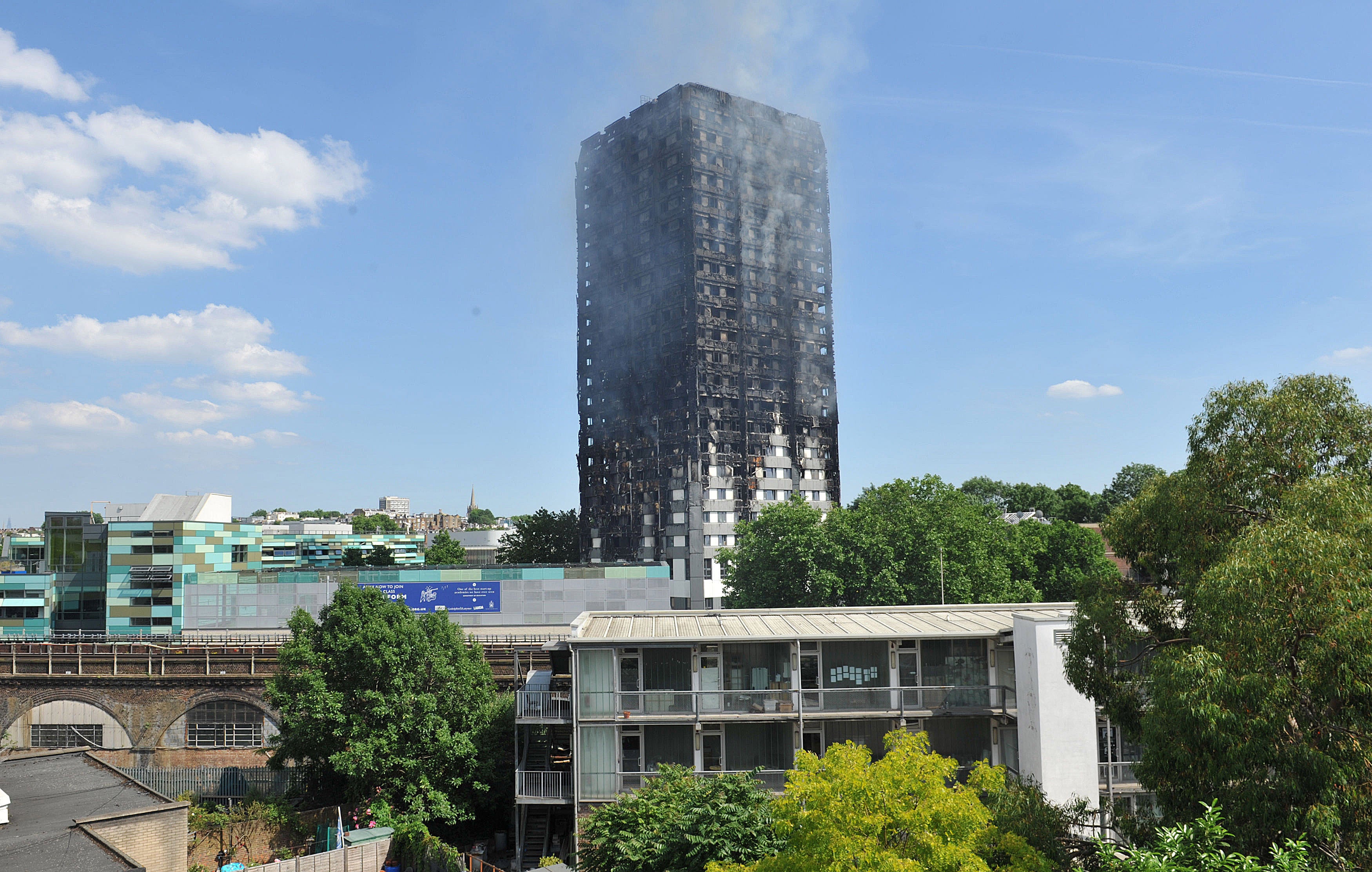Government warns housebuilders not to miss cladding deadline
Cabinet minister Michael Gove warned that time is running out.

Your support helps us to tell the story
From reproductive rights to climate change to Big Tech, The Independent is on the ground when the story is developing. Whether it's investigating the financials of Elon Musk's pro-Trump PAC or producing our latest documentary, 'The A Word', which shines a light on the American women fighting for reproductive rights, we know how important it is to parse out the facts from the messaging.
At such a critical moment in US history, we need reporters on the ground. Your donation allows us to keep sending journalists to speak to both sides of the story.
The Independent is trusted by Americans across the entire political spectrum. And unlike many other quality news outlets, we choose not to lock Americans out of our reporting and analysis with paywalls. We believe quality journalism should be available to everyone, paid for by those who can afford it.
Your support makes all the difference.Housebuilders who do not sign up to a voluntary pledge to help fix unsafe cladding on tall buildings could be banned from new construction, the Government has warned.
Levelling Up, Housing and Communities Secretary Michael Gove warned those who have not signed up to the multibillion-pound plan that time is running out.
“For the companies yet to make the pledge, the Secretary of State has also confirmed there is little time left for them to sign up, and that those who continue to refuse will face consequences if they fail to do so,” the Department for Levelling Up, Housing and Communities said.
“The Government is introducing new powers that allow enforcement on any remaining companies who fail to sign up, as well as those that breach the agreement they have signed up to.
“These new powers would allow the Secretary of State to block those who refuse to make and deliver on their commitments from building and selling new homes.”
We will do whatever it takes to hold industry to account, and under our new measures there will be nowhere to hide.
Developers will commit at least £2 billion to fix their own buildings and the industry will pay a further £3 billion through the building safety levy.
More than 35 of the biggest homebuilders in the UK pledged to fix all the buildings taller than 11 metres that they have played a role in developing over the last three decades.
The decision to fix the cladding was taken after the Grenfell Tower fire in 2017 in which more than 70 people died.
The fire spread rapidly due to the cladding that had been installed on the outside of the tower block.
Mr Gove said: “Today marks a significant step towards protecting innocent leaseholders and ensuring those responsible pay to solve the crisis they helped to cause.
“I welcome the move by many of the largest developers to do the right thing.
“But this is just the beginning. We will do whatever it takes to hold industry to account, and under our new measures there will be nowhere to hide.”
In January the Government said that leaseholders in high-rises should not have to pay for fixing the dangerous cladding.
Many have been stuck for years in unsafe properties that they cannot afford to fix and cannot find anyone to buy.
Persimmon, Crest Nicholson, Taylor Wimpey, Redrow, MJ Gleeson, Barratt Developments, Bellway, Countryside and Vistry are among those that have signed the pledge.
In it they promise to act as quickly as possible to fix the buildings, put new building safety guidance in place, and report to leaseholders and Government on their progress.
They also will have to listen to the decisions of a dispute resolution service that was set up by the Government and refund all the money they have already received from taxpayers.
Cllr David Renard, housing spokesperson at the Local Government Association, said: “We are pleased that the Government has listened to calls the LGA has been making for several years to protect leaseholders from the costs of two decades of industry failure.
“However, we call on the Government to provide the same protection to council tenants and council taxpayers as it has afforded homeowners, by exempting councils from the developer levy and funding the remediation of social housing on the same basis as private housing.”